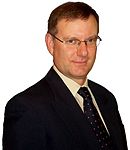Parti Québécois leadership election, 2005
|
|
|||||||||||||||||||||||||||||||||||||||||||||||||||||||||||||||||||||
|---|---|---|---|---|---|---|---|---|---|---|---|---|---|---|---|---|---|---|---|---|---|---|---|---|---|---|---|---|---|---|---|---|---|---|---|---|---|---|---|---|---|---|---|---|---|---|---|---|---|---|---|---|---|---|---|---|---|---|---|---|---|---|---|---|---|---|---|---|---|
|
|||||||||||||||||||||||||||||||||||||||||||||||||||||||||||||||||||||
| Turnout | 76.69% | ||||||||||||||||||||||||||||||||||||||||||||||||||||||||||||||||||||
|
|||||||||||||||||||||||||||||||||||||||||||||||||||||||||||||||||||||
|
|||||||||||||||||||||||||||||||||||||||||||||||||||||||||||||||||||||
The Parti Québécois leadership election of 2005 was held from November 13 to November 15, 2005 to elect the new leader of the Parti Québécois, the main sovereigntist and social democratic political party in Quebec, Canada.
It was the second race of its kind in the history of the party, following the leadership election of 1985. It was conducted in two rounds, under a preferential voting system. Former Minister André Boisclair was elected at the first round ballot with 53.7% of votes from party members, making him the first openly gay leader of a major political party in North America, and one of the first in the world.
On June 4, 2005, party leader Bernard Landry announced his intention to resign as leader of the PQ after getting 76.2% in a vote of confidence in his leadership from delegates to the party National Council. The party appointed Louise Harel as its interim leader. Gilles Duceppe, leader of the federal-level sovereigntist political party, the Bloc Québécois, was expected to be a strong candidate if he had decided to run. On June 11, he however announced that he would remain leader of the Bloc despite pressure to make a bid for the leadership of the PQ.
After months of pre-campaign, the race officially began on September 15, 2005, the official deadline for entering the race. Soon, Boisclair emerged as a favorite in the polls, with Pauline Marois second, Richard Legendre a close third and Louis Bernard fourth. The validity of these polls, much touted by the media, was however challenged by some candidate organizations since they were conducted on the whole population of Quebec, rather than the actual voter pool, the legal members of the Parti Québécois. Also criticized was the intense media focus on the four candidates leading in these said polls, leaving the ideas of the other candidates in the dark. The later were much less discussed and their opening monologues were even cut for pundit commentary in LCN live broadcastings of the official candidates' debates.
...
Wikipedia



